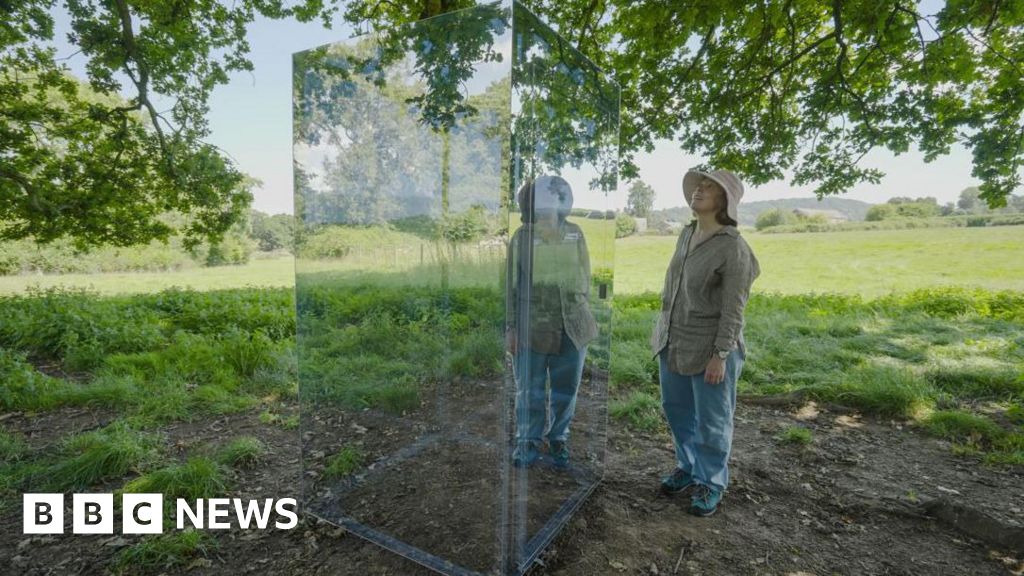- Investigations
How has Bitcoin performed since Trump took office?
时间:2010-12-5 17:23:32 作者:Travel 来源:Columnists 查看: 评论:0内容摘要:Russia’s largest retailer of Apple products, re:Store, closed for several months "to assess the situation" following the tech giant’s exit.Russia’s largest retailer of Apple products, re:Store, closed for several months "to assess the situation" following the tech giant’s exit.
Those who have seen olo describe it as a teal or green-blue colour – but one they had never seen before.In the article by UC Berkeley, it is described as a “blue-green colour of unparalleled saturation”.

“It was like a profoundly saturated teal … the most saturated natural colour was just pale by comparison,” Roorda said.“I wasn’t a subject for this paper, but I’ve seen olo since, and it’s very striking. You know you’re looking at something very blue-green,” Doyle said.The researchers said an image of a teal square is the closest colour match to olo. However, this square is not an olo-coloured square. The naked human eye simply cannot see the shade.

“If you start with the colour in that picture, and imagine dialling up the saturation further you would get to the teal of real peacock feathers, further still would be a laser in the teal wavelength, and far beyond that is olo, outside the natural space of human colors,” Ng told Al Jazeera.“We’re not going to see olo on any smartphone displays or any TVs any time soon. And this is very, very far beyond VR headset technology,” Ng said, according to a report in the UK’s Guardian newspaper.

Could this technology help people with colour blindness?
Berkeley researchers are exploring whether the Oz technology could help people with colour blindness.Several Maya Achi women in the courtroom applauded at the end of the trial, where some dressed in traditional attire and others listened to the verdict through an interpreter.
One of the victims, a 62-year-old woman, told the AFP news agency she was “very happy” with the verdict.Pedro Sanchez, one of the three men convicted, told the court before the sentencing, “I am innocent of what they are accusing me of.”
But Judge Marling Mayela Gonzalez Arrivillaga, another member of the all-women, three-panel court, said there was no doubt about the women’s testimony against the suspects.The convictions were second in the Maya Achi women’s case against former military personnel and paramilitaries. The first trial, which took place in January 2022, saw five former paramilitaries sentenced to 30 years in prison.
- 最近更新
- 2025-07-07 10:07:14Board aims to boost revenue from tourism by £2.5bn
- 2025-07-07 10:07:14Ukraine's 'chaotic' withdrawal from Russia, in its soldiers' words
- 2025-07-07 10:07:14Migrant tents removed from Guantanamo bay, satellite images show
- 2025-07-07 10:07:14Afghanistan welcomes upgraded diplomatic ties with neighbouring Pakistan
- 2025-07-07 10:07:14India’s latest coffee hub? Beans and brews offer new hope to Nagaland
- 2025-07-07 10:07:14Gaza ‘hungriest place on Earth’, all its people at risk of famine, UN warns
- 2025-07-07 10:07:14Sir John Curtice: The map that shows Reform's triumph was much more than a protest vote
- 2025-07-07 10:07:14Heavy rain disrupts life in several Indian cities
- 热门排行
- 2025-07-07 10:07:14How the Fed rate affects your student loans
- 2025-07-07 10:07:14New electric bus fleet prepares to hit the streets
- 2025-07-07 10:07:14Interest from bonds and bond funds
- 2025-07-07 10:07:14Pakistan beat Bangladesh by 57 runs: second T20I cricket – as it happened
- 2025-07-07 10:07:14according to the Senior Citizens League
- 2025-07-07 10:07:14William: Attenborough was 'inspiration' for new show
- 2025-07-07 10:07:14Car insurance myths: Red cars, rate negotiations and other popular misconceptions
- 2025-07-07 10:07:14Knicks-Pacers: Haliburton struggles in Game 5 loss in NBA East finals
- 友情链接
- Butt-lift injector banned from carrying out procedures Busy hurricane season expected as forecasters fear Trump cuts Visit the Arctic vault holding back-ups of great works Four dead, several missing in record Australia flooding Girl, 15, raped by masked man who led her from bus stop Smokey Robinson files $500m case against rape accusers French MPs vote to scrap low-emission zones Wildfire blazes in woods for eight hours The tiny island where puffins are thriving despite global decline Kara Tointon has double mastectomy after gene test Film and TV model maker warns skill may disappear Seven Mexican youths shot dead at church festivity Trump tariffs can stay in place for now, appeals court rules US trade court blocks Trump's sweeping tariffs. What happens now? Council trialling AI for special needs reports How 'laughing gas' became a deadly - but legal - American addiction 2025 Sony World Photography Awards: Winners revealed 2025 Sony World Photography Awards: Winners revealed Norwegian princess moves to Australia for university Greek coastguards charged over 2023 migrant shipwreck How Trump-Ramaphosa confrontation went down in South Africa Girl, 15, raped by masked man who led her from bus stop 'I didn't know my hoarding was a mental illness' German chancellor promises to help Ukraine produce long-range weapons Sean 'Diddy' Combs raped and attacked ex-assistant, she tells court 'Wedding bomb' murderer gets life sentence in India Firefighter photos reveal wildfire damage to coastal forest Your pictures on the theme of 'winter walks' Do we need cocoa-free chocolate and is it nice? How much has Elon Musk's Doge cut from US government spending?
